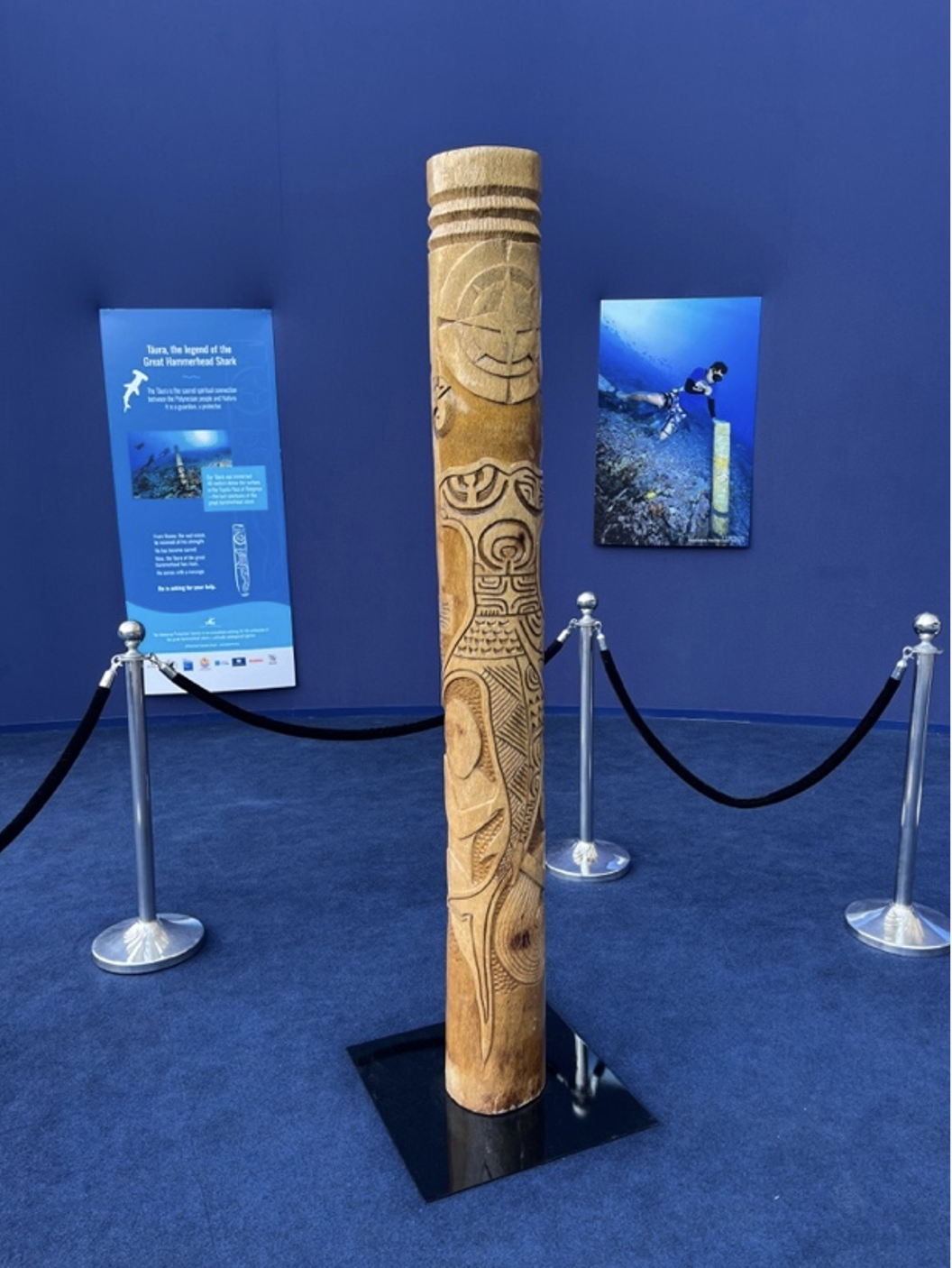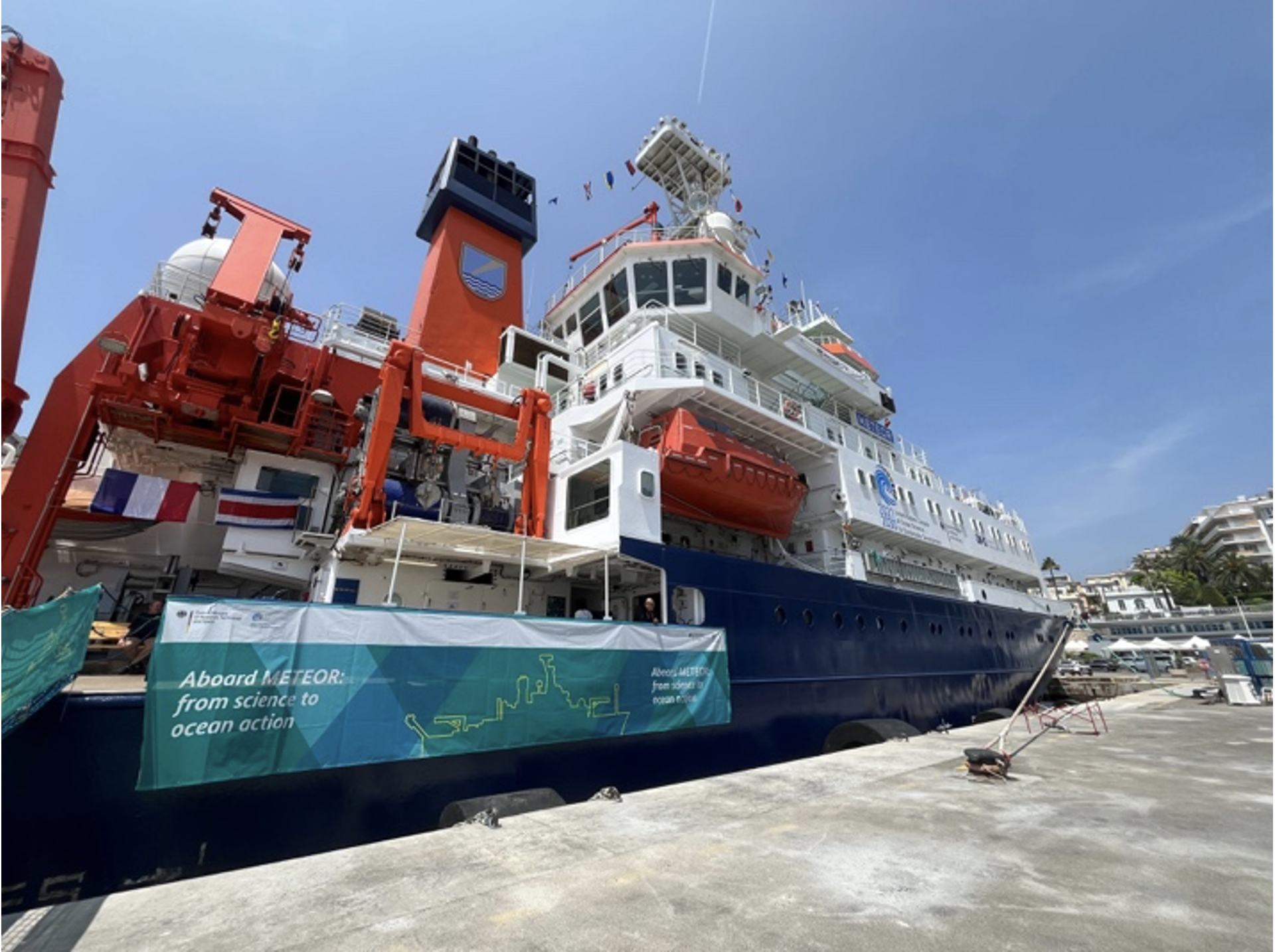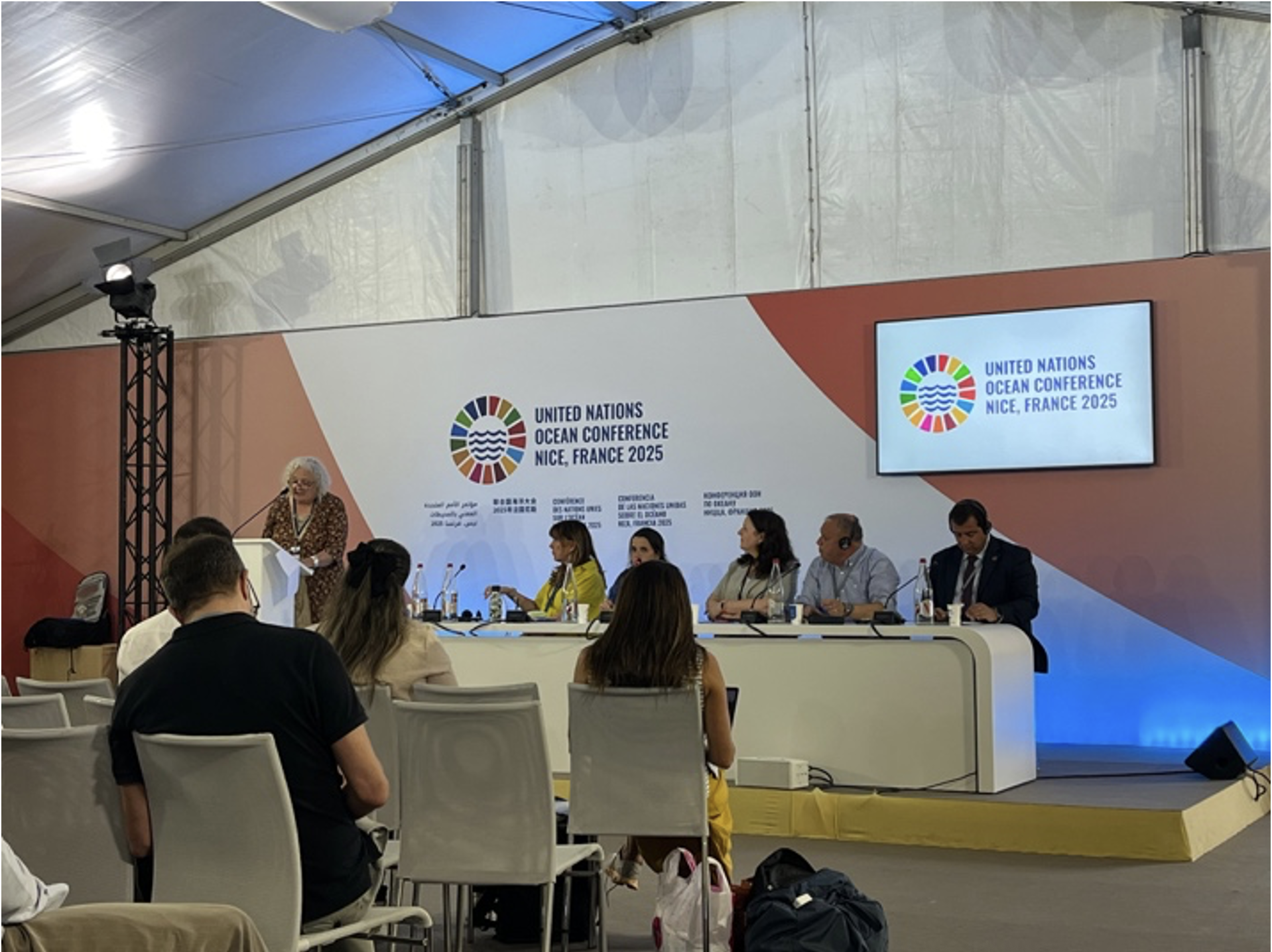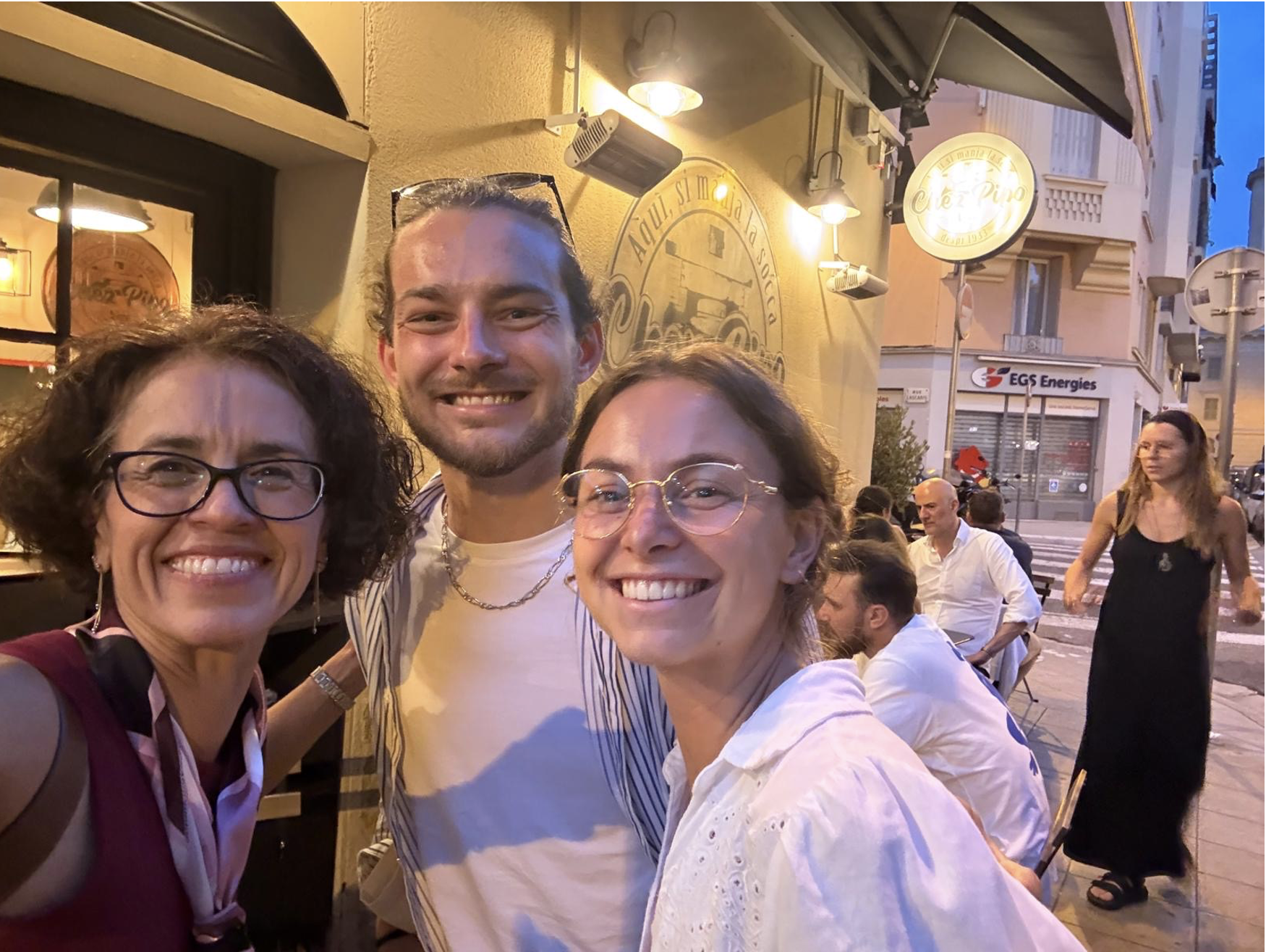United Nations Ocean Conference Reflection
This summer, I had the incredible opportunity to spend three days at the Third United Nations Conference on Oceans (UNOC3) in Nice, France organized by the French and Costa-Rican governments. The summit included a Green Zone, called ‘The Whale’, offering conferences, discussions and various booths with professionals from NGOs, international or local organizations, private companies, and artists. Also, thanks to one of my professors at Fletcher, I received an accreditation to enter the restricted area of the summit (Blue Zone), which gave me an unparalleled opportunity to attend high-level discussions and events on ocean diplomacy.
Attending UNOC3 in Nice was a transformative experience that deepened my understanding of Indigenous Ocean stewardship, expanded my network, and gave me firsthand exposure to international environmental diplomacy. Beyond the fact that I could travel to the conference by train (it was really important for me not to fly to attend an environmental event), UNOC3 was a unique chance for me to: (1) gain meaningful insights for my capstone from professionals; (2) connect with people interested in the same topics as I am and working in institutions I am curious about; and (3) discover the realities of international diplomatic summits.
Meaningful encounters and discussions on Indigenous Peoples’ voices
As my capstone at Fletcher focuses on Indigenous peoples’ traditional stewardship of nature, I wanted to attend as many events as possible related to the topic in order to gain new perspectives for my academic work.
Mokarran Protection Society’s great hammerhead shark totem
I attended a panel discussion: ‘Indigenous Peoples, their Voices, and Coastal Ecosystems’ in the Blue Zone, which emphasized how Indigenous Peoples from across the world are intrinsically connected to the Ocean, and that their voices and leadership must stir efforts on sustainable Ocean governance. It connected with another panel discussion called ‘Localization of SDG14’, where mayors and local officials from around the world, acknowledging that the Ocean connects us all, discussed how the engagement of local voices and institutions is pivotal to make Ocean policy and management sustainable and locally relevant.
Beyond the panels, I had a very insightful conversation with a member of the Mokarran Protection Society, a non-profit association studying and protecting the great hammerhead shark (Sphyrna mokarran) population of French Polynesia where the species is seriously threatened with extinction.
They had displayed a Tāura Tamataroa, a totem and messenger of the great hammerhead shark, an ambassador of the vibrant and proud Indigenous culture of the atoll. The sculptor explained to me that Polynesian peoplehave a deep spiritual connection with the great hammerhead shark and the Ocean — a relationship that Western science has trouble understanding and acknowledging without trying to explain it. But this profound bond between people and the Ocean is what makes each party both respectful of and protective toward the other, sustaining a wise and intergenerational balance in each other’s lives.
I realized that indeed, the Western techno-scientific mind can hardly understand such a concept—but as the sculptor told me: Western science is a human culture among others, and it must be open to learning from other cultures . This resonated with the panel discussions I attended and the work I have been doing for my capstone: Indigenous worldviews have a lot to teach us to reinvent the Western relationship with Nature, as Humans are inextricably part of Nature.
Networking and connections around sustainable Ocean governance
Aboard the Research vessel METEOR, I participated in a group dialogue centered on Indigenous voices in the UNESCO Ocean Decade. The discussion was structured around how to better understand and incorporate Indigenous knowledge in the implementation of SDG14, the sustainable development goal associated with ocean conservation and sustainability. This dialogue was an amazing opportunity to listen to and connect with people from around the world—from Mapuche in Chile to Māori from New-Zealand and Wolastoqey First Nation from Canada. I also spoke with professionals from various NGOs and institutions—connections that will, I am sure, be valuable in my future professional journey.
Overall, I will remember that Indigenous knowledge is increasingly at risk of being lost if not thoughtfully considered and preserved, and that it must be paired with Western science (not incorporated nor merged) to achieve meaningful and respectful outcomes in Ocean governance, both for the people and the planet.
Research Vessel METEOR
Panel on ‘Localizing SDG 14’.
Attending international discussions on Fisheries and The Plastic Treaty
I was also curious about the realities of international diplomatic discussions which really boiled down to – how do these world-wide decisions actually get made? After studying the processes in classes, it was a fantastic opportunity to see them in real life. I sat in the plenary meeting room during two sessions on fisheries and on the Plastic Treaty. Even though it was interesting to hear the different delegates from various countries, it confirmed my previously held beliefs that such processes are extremely slow and hardly ambitious. In my opinion, what truly matters at such an international conference to advance genuine ambition is the side work and events organized and attended by all stakeholders.
Acknowledgments
I am truly grateful to Jillian and CIERP for making this experiential learning trip possible thanks to their funding. I also wanted to thank Pr. Marcia Moreno-Baez, and my Fletcher friend Nathalie, with whom I attended the conference and made it a memorable event.
Pr. Marcia Moreno-Baez, Nathalie Estiévenart and Paul-Emile Pissier at UNOC3 in Nice, France
Paul-Emile Pissier is a MALD student specializing in environmental policy and ecological diplomacy, currently completing a dual-degree program with HEC Paris' Master in Management. Inspired by Indigenous environmental stewardship in North America, his work focuses on reconnecting European history, landscapes, and ecosystems.





